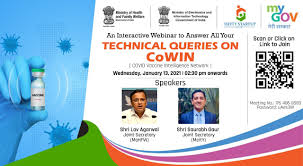
A recent study published in JAMA Network Open, conducted by researchers from the University of Illinois Chicago, has found that time-restricted eating, commonly known as intermittent fasting, can be an effective method for individuals with Type 2 diabetes to manage their weight and regulate blood sugar levels. The study involved participants who confined their eating to an eight-hour window from noon to 8 p.m. daily. Interestingly, this group exhibited greater weight loss over six months compared to those instructed to reduce their calorie intake by 25%. Both groups showed similar improvements in long-term blood sugar levels, as determined by hemoglobin A1C tests, which reflect blood sugar levels over the past three months.
The research, carried out at UIC, involved 75 participants divided into three groups: those adhering to time-restricted eating, those reducing calorie intake, and a control group. Measurements of participants’ weight, waist circumference, blood sugar levels, and other health indicators were taken over the six-month duration.
Senior author Krista Varady noted that participants in the time-restricted eating group found it easier to adhere to the regimen compared to those in the calorie-reducing group. This is attributed, in part, to the fact that individuals with diabetes are typically advised by their doctors to cut down on calories as a primary approach. Consequently, many of these participants may have already attempted—and faced challenges with—this form of dieting. Although the time-restricted eating group was not specifically instructed to reduce their calorie intake, they ended up doing so by confining their eating to a specific time window.
“Our study shows that time-restricted eating might be an effective alternative to traditional dieting for people who can’t do the traditional diet or are burned out on it,” stated Varady, who is a professor of kinesiology and nutrition. “For many people trying to lose weight, counting time is easier than counting calories.”
During the six-month study, no serious adverse events were reported. Incidences of hypoglycemia (low blood sugar) and hyperglycemia (high blood sugar) did not vary significantly between the diet groups and the control group.
Currently, one in ten U.S. residents has diabetes, and this number is projected to escalate to one in three by 2050 if present trends persist, as explained by the researchers. Hence, identifying more options to manage weight and blood sugar levels for these individuals is of paramount importance.
Of the participants, slightly over half were Black, and another 40% were Hispanic. This is noteworthy because diabetes is particularly prevalent in these demographic groups, making studies that demonstrate the effectiveness of time-restricted eating especially valuable, according to the researchers.
Varady, who is also a member of the University of Illinois Cancer Center, emphasized that the study was small and should be followed up by larger-scale research. While it serves as a proof of concept, demonstrating the safety of time-restricted eating for those with Type 2 diabetes, Varady advised individuals with diabetes to consult their healthcare providers before embarking on this type of diet.











